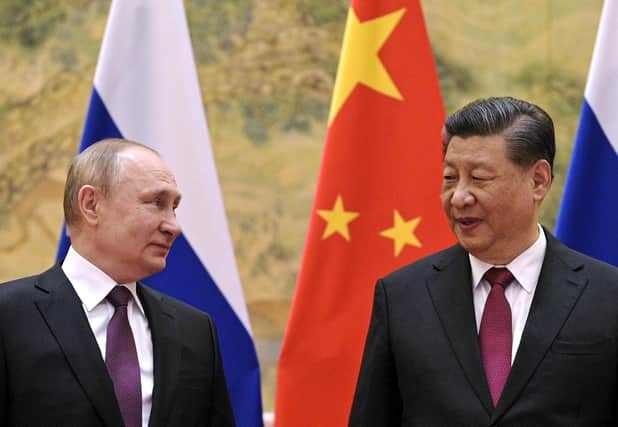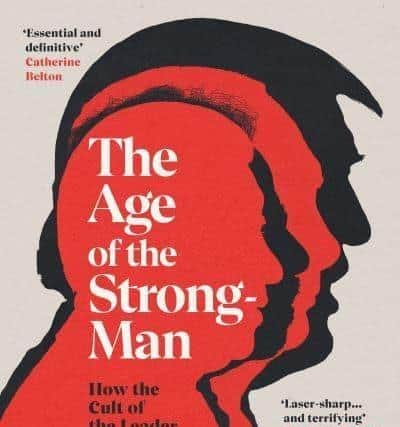Book review: The Age of the Strongman, by Gideon Rachman


After the fall of the Berlin Wall in 1989, it seemed to some in the west that the triumph of what they called “liberal democracy” was now complete. The combination of free markets, democratic institutions and the rule of law had proved so irresistibly successful, they thought, that the world would progress inexorably in that direction; in1992, Francis Fukuyama even wrote a book about it, The End Of History, which was much discussed at the time, with both approval and scepticism.
As it turns out, of course, the sceptics were right; and this brilliant and profoundly alarming new book by the Financial Times’s chief foreign affairs commentator Gideon Rachman offers a comprehensive survey, written with pace, clarity, and a superb, page-turning narrative fluency, of the gradual collapse of that fragile post-Cold War consensus into a new age of authoritarian dictatorship, mainly characterised by the historically familiar spectacle of ageing male leaders pumping up up a rhetoric of war, threat, national destiny and “traditional values” to the point where actual armed conflict becomes difficult to avoid.
Advertisement
Hide AdRachman therefore takes us on an unforgettable global tour of resurgent authoritarianism, from Vladimir Putin’s Russia through Erdogan’s Turkey, Xi Jinping’s China, Narendra Modi’s India, Duterte’s Philippines, the Middle East of Mohammed Bin Salman, and the Latin America of Jair Bolsonaro, among other destinations. Most chillingly, he also charts how the strongman model of authoritarian reactionary government has begun to corrode the world’s traditional bastions of liberal democracy, with brilliant chapters on Trump’s America, on Brexit Britain and Boris Johnson, and on the European Union, which now finds authoritarian strongman government within its gates, in Poland and Hungary.


And in almost every case, it is clear that this trampling of democratic norms, replete with fierce reactionary assaults on the rights of women and minorities, is being carried through with the wholehearted approval of electorates who do not give a damn about those values, so long as the leaders who trash them offer some semblance of stability, and promote simplistic “narratives” – often completely false – which the majority find reassuring. Rachman also points out that some of these leaders are not just blustering instinctive reactionaries, but serious theorists of the end of liberalism, turning to the once-discredited Nazi political theorist Carl Schmitt for a political theory that elevates national identity to a defining role in politics, and treats democratic principles like freedom of speech, freedom of the media, separation of powers, and the rule of law with explicit contempt.
So what is to be done? Rachman’s book was completed before the Russian invasion of Ukraine; but his analysis is so powerful that it all but predicts Putin’s next move, made inevitable by his own retro-imperialist rhetoric. In the end, he takes a generational view of politics, pointing out that the current group of “strong men” cannot last for ever, and that the ascendancy of their ideas may not long survive them; for myself, I would rather have seen a closer analysis of how the flawed model of “liberal democracy” rolled out in the 1990s – which emphasised free markets and quick profits far more than real social justice and democratic institution-building – helped promote the rise of this type of government, as it did in the 1930s.
For now, though, it seems all we can do is cling fast to the hard-won wisdom of the post-Second World War era about how to build a sustainable international order, and advance those principles where we still can. And pray, of course, that the current storm of reactionary thinking and authoritarian rule may pass, not only without another conflict on the scale of 1939-45, but also before the planet itself becomes uninhabitable to us, through lack of the kind of wise international action that – in the age of the hyper-nationalist strongman – has become anathema to too many, just at the moment when we need it most.
The Age of the Strongman: How the Cult of the Leader Threatens Democracy around the World, by Gideon Rachman, The Bodley Head, £20
A message from the Editor:
Thank you for reading this article. We're more reliant on your support than ever as the shift in consumer habits brought about by coronavirus impacts our advertisers.
If you haven't already, please consider supporting our trusted, fact-checked journalism by taking out a digital subscription at https://www.scotsman.com/subscriptions